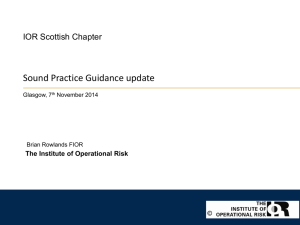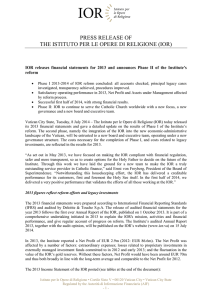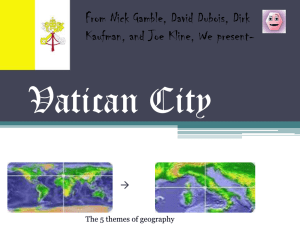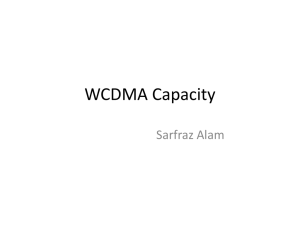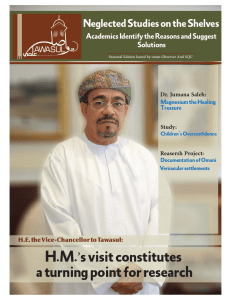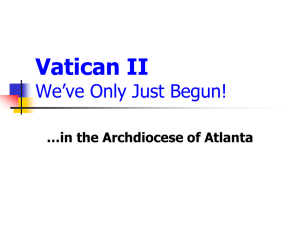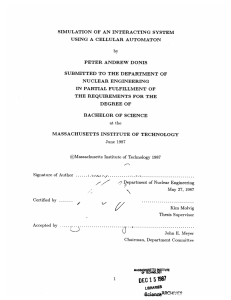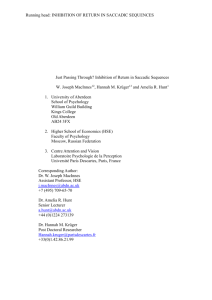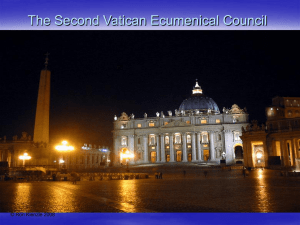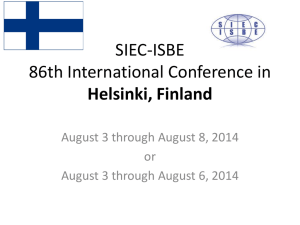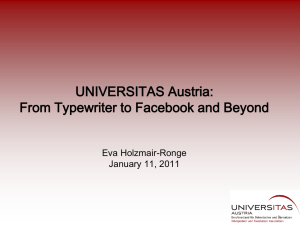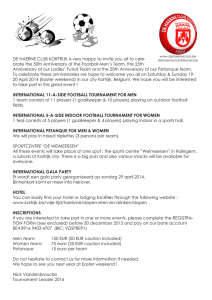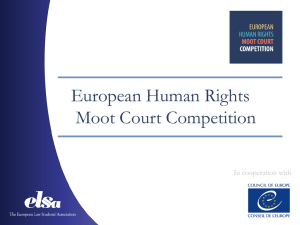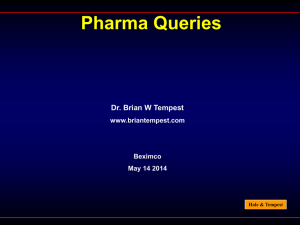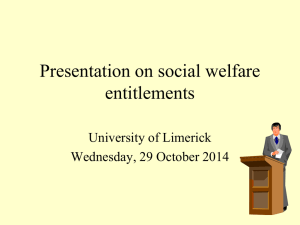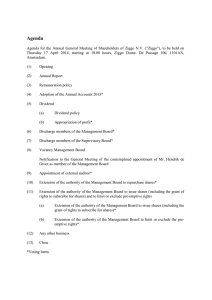FACT SHEET
advertisement
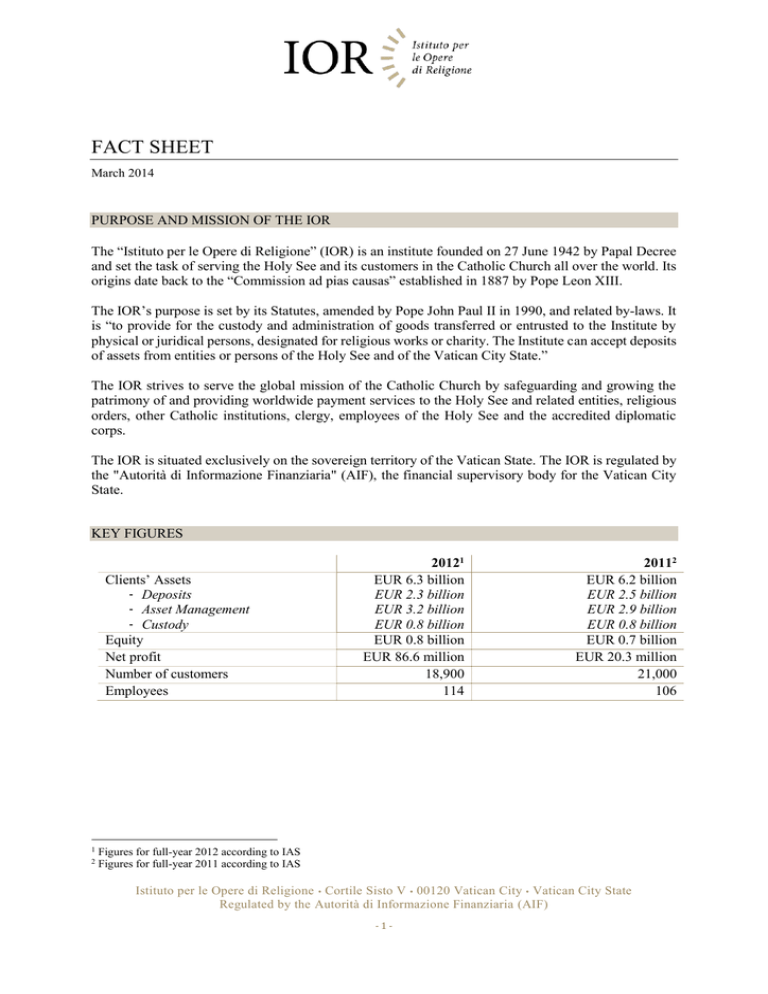
FACT SHEET March 2014 PURPOSE AND MISSION OF THE IOR The “Istituto per le Opere di Religione” (IOR) is an institute founded on 27 June 1942 by Papal Decree and set the task of serving the Holy See and its customers in the Catholic Church all over the world. Its origins date back to the “Commission ad pias causas” established in 1887 by Pope Leon XIII. The IOR’s purpose is set by its Statutes, amended by Pope John Paul II in 1990, and related by-laws. It is “to provide for the custody and administration of goods transferred or entrusted to the Institute by physical or juridical persons, designated for religious works or charity. The Institute can accept deposits of assets from entities or persons of the Holy See and of the Vatican City State.” The IOR strives to serve the global mission of the Catholic Church by safeguarding and growing the patrimony of and providing worldwide payment services to the Holy See and related entities, religious orders, other Catholic institutions, clergy, employees of the Holy See and the accredited diplomatic corps. The IOR is situated exclusively on the sovereign territory of the Vatican State. The IOR is regulated by the "Autorità di Informazione Finanziaria" (AIF), the financial supervisory body for the Vatican City State. KEY FIGURES Clients’ Assets - Deposits - Asset Management - Custody Equity Net profit Number of customers Employees 1 2 20121 EUR 6.3 billion EUR 2.3 billion EUR 3.2 billion EUR 0.8 billion EUR 0.8 billion EUR 86.6 million 18,900 114 20112 EUR 6.2 billion EUR 2.5 billion EUR 2.9 billion EUR 0.8 billion EUR 0.7 billion EUR 20.3 million 21,000 106 Figures for full-year 2012 according to IAS Figures for full-year 2011 according to IAS Istituto per le Opere di Religione • Cortile Sisto V • 00120 Vatican City • Vatican City State Regulated by the Autorità di Informazione Finanziaria (AIF) -1- SERVICES The IOR provides deposit taking, asset management, custodial functions and international payment transfers through correspondent banks, and holds salary and pension accounts of employees of the Vatican. The IOR predominantly invests its customers’ assets in fixed interest securities, government bonds and money market accounts. Less than five percent of total assets are invested in externally managed funds and equities. The IOR does not use deposits to lend money and does not issue securities for resale or other financial products. CUSTOMERS According to its Statutes the IOR provides its services only to legal and natural persons with an affiliation to the Catholic Church defined by Canonical or Vatican Law. As of year-end 2012 these customers mainly consist of: 5,200 Catholic institutions: Holy See and related entities, religious orders, and dioceses that account for more than 85% (EUR 6.0bn of 7.1bn) of assets under management. 13,700 individuals: clerics, employees/or former employees of the Vatican with salary and pension accounts and diplomats accredited to the Holy See. Assets held for individuals account for around 15% (EUR 1.1bn of 7.1bn). Salary and pension accounts are held for 5,000 persons with specific entitlement through employment at the Vatican. According to the requirements of Vatican Law and international inter-bank payment systems central to the IOR’s services, IOR accounts are opened and kept in the official name of the respective customer. The IOR is currently undergoing an outside review by Promontory Financial Group of all client relationships and the anti-money-laundering procedures it has in place. In parallel, the Institute is implementing appropriate improvements to its structures and procedures. This process was initiated in May 2013 and will be continued in 2014. Istituto per le Opere di Religione • Cortile Sisto V • 00120 Vatican City • Vatican City State Regulated by the Autorità di Informazione Finanziaria (AIF) -2- CORPORATE GOVERNANCE The IOR’s governance structure has been defined in the IOR’s revised Statutes of 1990. It consists of: 1. Cardinals’ Commission of five Cardinals appointed by the Holy Father for a period of five years. The commission currently consists of Cardinal Santos Abril y Castilló, Archpriest of the Papal Basilica of St Mary Major, President Cardinal Thomas Christopher Collins, Archbishop of Toronto Cardinal Pietro Parolin, Titular Archbishop of Acquapendente and Secretary of State Cardinal Christoph Schönborn, Archbishop of Vienna Cardinal Jean-Louis Tauran, President of the Pontifical Council for Interreligious Dialogue The Cardinals’ Commission meets at least twice a year to review accounts externally audited under international accounting standards (IAS) since 1996. It also reviews reports on major business processes and strategy presented by the President of the Board of Superintendence. It oversees adherence to statutory norms and appoints the members of the Board of Superintendence. 2. A Prelate appointed by the Cardinals’ Commission with the approval of the Holy Father: Msgr. Battista Mario Salvatore Ricca, appointed ad interim The Prelate acts as secretary of the meetings of the Cardinals’ Commission and attends the meetings of the Board of Superintendence. 3. Board of Superintendence of five appointed members nominated for five years. Ernst von Freyberg, president and executive member of the Board of Superintendence Carl A. Anderson, non-executive member Antonio Maria Marocco, non-executive member Ronaldo Hermann Schmitz, non-executive member Manuel Soto Serrano, non-executive member The Board of Superintendence meets 4 to 6 times a year. It defines strategy and ensures oversight of operations. The mandate of the members of the Board of Superintendence expires in December 2015. 4. Directorate appointed by the Board of Superintendence and approved by the Cardinals ’ Commission is responsible for operations. The Directorate currently consists of Rolando Marranci, General Director 5. Board of Auditors of three members appointed by the Board of Superintendence for a maximum period of three years: Massimo Spina, President of the IOR Board of Auditors Rodolfo Molinuevo Orue Pierluigi Bernasconi The Board of Auditors reports to the Board of Superintendence. It is responsible for the internal audit of the IOR’s books on a quarterly basis. In addition, the Board of Auditors reviews the annual financial statements. Istituto per le Opere di Religione • Cortile Sisto V • 00120 Vatican City • Vatican City State Regulated by the Autorità di Informazione Finanziaria (AIF) -3- Pontifical Commission By Chirograph of 24 June 2013, the Holy Father established a Pontifical Commission for the IOR. In close cooperation with the IOR and in accordance with the Chirograph of 1 March 1990, this commission is tasked with gathering information on the Institute's legal position and activities and with presenting these to the Holy Father. The Pontifical Commission thus aims at the harmonization of the IOR with the universal mission of the Church and the Apostolic See. The commission currently consists of: Cardinal Raffaele Farina, President Cardinal Jean-Louis Pierre Tauran, Member Bishop Juan Ignacio Arrieta Ochoa de Chinchetru, Coordinator Monsignor Peter Bryan Wells, Secretary Professor Mary Ann Glendon, Member Istituto per le Opere di Religione • Cortile Sisto V • 00120 Vatican City • Vatican City State Regulated by the Autorità di Informazione Finanziaria (AIF) -4- TIMELINE: HISTORIC HIGHLIGHTS 11 February 1887 Pope Leo XIII constitutes the “Commissione ad pias causas” 24 November 1904 “Commission of Cardinals for the Works of Religion” with own regulation 17 March 1941 Foundation of the “Administration of the Works of Religion”; Pope Pius XII approves the first Statutes of the “Administration of the Works of Religion” 27 June 1942 Pope Pius XII constitutes by Chirograph the “Istituto per le Opere di Religione” (IOR) with own legal person status, which absorbs the “Administration of the Works of Religion” (Acta Ap.Sedis n.217, 1942) 1 March 1990 Pope John Paul II approves by Chirograph the present Statutes of the IOR 30 December 2010 Creation of the "Autorità di Informazione Finanziaria" (AIF), the Vatican’s financial regulator; Introduction of the Act of the Vatican City State No. CXXVII on the prevention and countering of the laundering of proceeds resulting from criminal activities and financing of terrorism 25 January 2012 Amendment of anti-money laundering and countering the financing of terrorism (AML/CFT) Law by Decree No. CLIX 24 April 2012 Presentation of the Law CLXVI to confirm Decree No. CLIX on the prevention and countering of the laundering of proceeds resulting from criminal activities and financing of terrorism 14 December 2012 Law amending the Decree No. CLIX of 25 January 2012, converted into Law No. CLXVI on 24 April 2012 24 June 2013 Establishment of a Pontifical Commission by Chirograph of Pope Francis 8 August 2013 Motu Proprio of Pope Francis for the prevention and countering of money laundering, the financing of terrorism and the proliferation of weapons of mass destruction, pursuant to the steps already taken by Benedict XVI in this area with the Motu Proprio of 30 December 2010 1 October 2013 Publication of the Institute’s Annual Report for 2012. This is the first ever Annual Report of the IOR being made available to the public. 9 October 2013 New Law XVIII of Vatican City State on transparency, supervision and financial information Istituto per le Opere di Religione • Cortile Sisto V • 00120 Vatican City • Vatican City State Regulated by the Autorità di Informazione Finanziaria (AIF) -5- IOR MEDIA CONTACT Max Hohenberg, Markus Wieser T +39 06 698 85 910 press@ior.va IOR CONTACT IOR - Istituto per le Opere di Religione Cortile Sisto V 00120 Vatican City Vatican City State T +39 06 698 83 354 info@ior.va www.ior.va Istituto per le Opere di Religione • Cortile Sisto V • 00120 Vatican City • Vatican City State Regulated by the Autorità di Informazione Finanziaria (AIF) -6-
